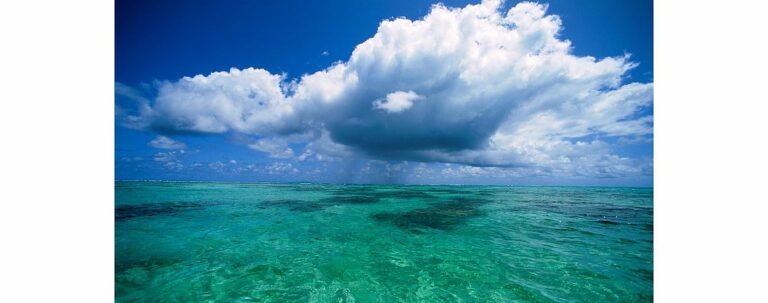As reported by Ifremer, a major international airborne and oceanographic mission off the Caribbean island of Barbados is preparing to study two major climate unknowns: trade wind cumulus clouds and mesoscale eddies in the ocean. This international campaign, initiated by researchers from the CNRS in France and the Max Planck Institute in Germany with their colleagues from Barbados, joined by teams from the US and the UK, will take place from 20 January to 20 February 2020 and will make use of numerous innovations in the areas of atmospheric and oceanic observation. The campaign should help to reduce uncertainties about the rate and extent of global warming in the future.
For the last forty years, climatologists have been grappling with a key parameter on which the extent of future global warming depends: the sensitivity of the climate system to CO2 increase in the atmosphere. However, they now know that the way in which clouds react to global warming lies at the heart of the problem.
In an attempt to get a clearer picture, the EUREC4A (Elucidating the role of clouds-circulation coupling in climate) international campaign, co-directed by Sandrine Bony of the CNRS and Bjorn Stevens of the Max Planck Institute, in partnership with David Farrell of the Caribbean Institute for Meteorology and Hydrology, will, for one month, focus on trade wind cumulus clouds off the coast of the Caribbean island of Barbados. These small fair-weather clouds are of great interest to climatologists: due to their widespread presence in the tropics, a slight change in their properties could have significant consequences for the climate. Will the coverage of these clouds, which have cooling properties, increase or decrease with global warming? Depending on the answer, warming would be either diminished or enhanced. In addition, the spatial organisation of these clouds can take on various patterns (see images). What controls these different arrangements? Do they play a role in the cooling properties of the clouds? Are they affected by global warming?
In order to better understand the physics of these clouds, the ways in which they form and the factors that affect their properties, the EUREC4A campaign will deploy five aircraft equipped with state-of-the-art instrumentation and innovative methods. In particular, the French ATR-423 will fly along the base of the clouds, combining radar and lidar measurements as well as numerous in situ measurements, in order to study their extent and properties (quantity of water, droplet size, internal motion, etc). At higher altitudes, the German aircraft will release ‘dropsondes’ to measure the vertical air speed on large scales. At the same time, the Barbados cloud observatory will characterize the atmosphere from the ground, while four research ships and a multitude of drones will study the interface between ocean and atmosphere.
Over 30 institutions from 11 countries are taking part in the campaign. To find out more, read the Press Release.
The All-Atlantic Ocean Research Alliance implements the Belém Statement and aims to encourage new models of cooperation in a coordinated and partnership-based approach to address the scientific and societal challenges of the Atlantic Ocean based on the principles of shared responsibility and mutual benefit in key areas, including climate variability. It is long known that the ocean’s physical and biological processes influence Earth’s weather and climate. But changes are occurring: ocean acidification, sea level rise, flooding and extreme weather, climate change; which are impacting countries and communities, as well as ocean’s processes and ecosystems themselves. There is a need to work together to better understand and predict climate variability to ensure humankind’s well-being and build a sustainable blue economy.

